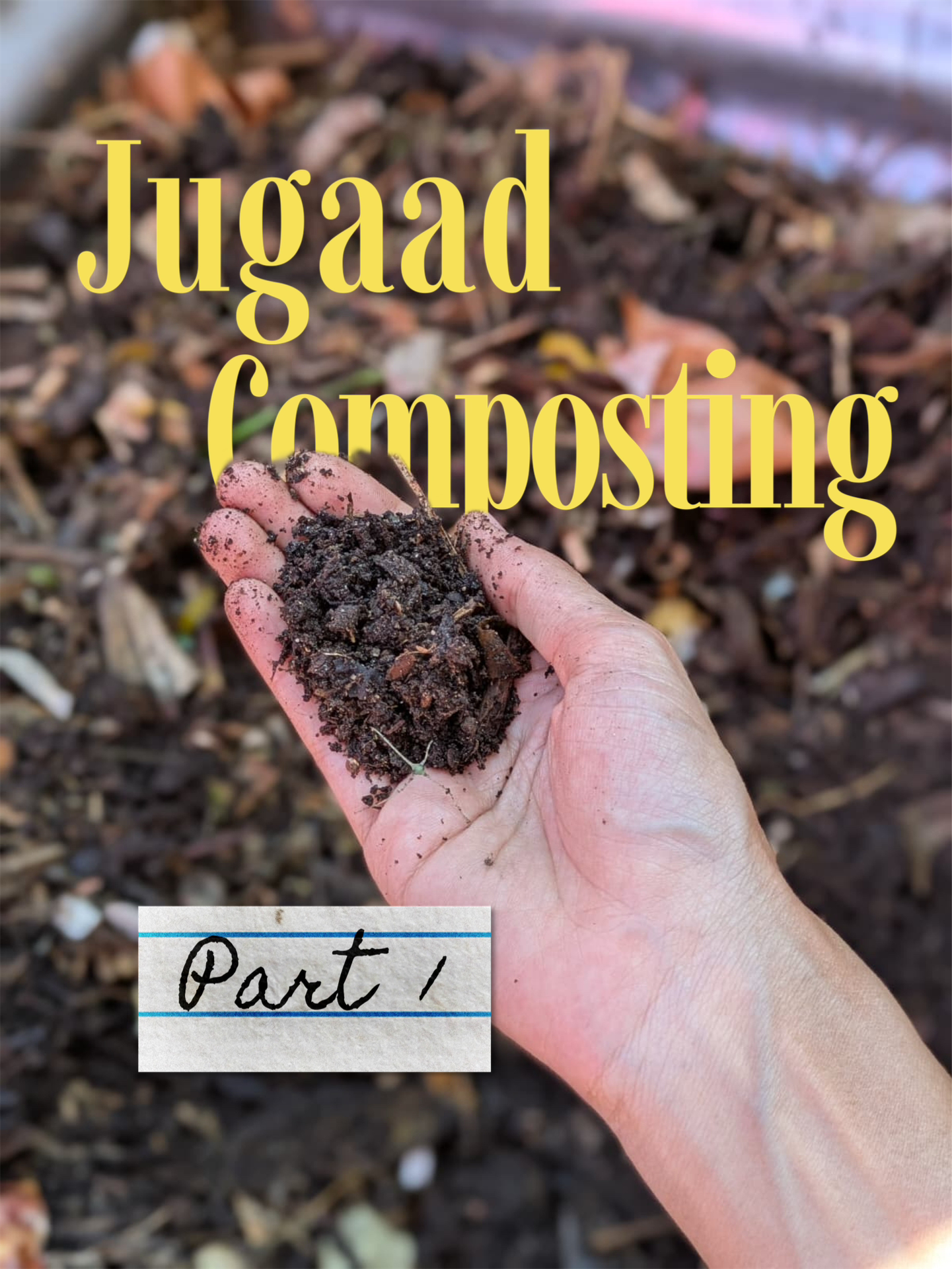Editor’s note: Jugaad is a Hindi word often used to describe clever, resourceful, and low-cost problem-solving - usually with whatever materials are available. This series, written by Sangeetha, captures her no-fuss, no-frills journey into home composting - one jugaad at a time.
This started back in 2020 - during COVID - when people were picking up hobbies like baking banana bread or nurturing balcony gardens. I, on the other hand, was still figuring out how to be creative with my time. That’s when I came across a WhatsApp status from my ex-colleague that read:
“Zero food waste from my house for the last two months.”
I didn’t know that message would change my life.
Growing up in suburban Mumbai, I didn’t know it then, but our life was naturally circular. If a shoe strap broke, we got it stitched for five bucks and extended its life. My wardrobe was full of hand-me-downs. New clothes arrived twice a year - birthdays and Diwali. We reused everything: newspapers became book covers, old T-shirts became kitchen wipes, birthday gift wrap got carefully ironed and stored for regifting.
We lived with minimal waste - not because it was trendy, but because it was normal. And it was frugal.
But slowly, convenience crept in. Milk started coming in plastic packets. My steel school tiffin gave way to shiny new Tupperware (which, let’s be honest, was peak cool in school). Plastic containers took over - even though they wore down quickly, unlike those solid steel ones that will probably outlive me.
It took living in Bangalore, and later London, to reawaken the circularity bug in me. These cities - or at least the parts I lived in - had normalized waste separation. Just the simple act of sorting food scraps from dry waste. So, when I returned to Mumbai, the lack of that seamlessness frustrated me. I felt the itch again - but this time I had to find my own way to scratch it. Systemic solutions weren’t coming.
A Push From the Neighborhood
I was elated (probably the only one in our building) when our wastepicker announced he’d only collect trash if it was sorted. While I wished the municipality had backed it up with how-tos or signage, I was personally relieved - I’d done this before, and sorting food waste from non-food waste felt like the bare minimum.
But not everyone agreed.
One neighbor, in particular, refused. Every morning, while handing over her trash, she would yell at the wastepicker:
“That’s your job, not mine!”
It stung.
Her “I make the mess, you clean it up” attitude wasn’t just lazy - it was disrespectful. I genuinely wished that day the wastepicker had refused to take her trash. Maybe it would’ve taught her a lesson. And it reminded me, again, how critical policy and regulation are in changing behavior.
So yes - a WhatsApp status, a petty neighborly fight, and a short-lived regulation... those three things triggered my composting journey.
To make up for my neighbor’s apathy, I made sure my parents stuck to strict segregation at home.
But unfortunately, others didn’t.
And after a while, the rule quietly faded away…
… My journey didn’t!
Coming up next:
In the next post, I’ll show you how I set up my first DIY compost bin in a cramped Mumbai apartment using nothing but flower pots and borrowed soil. No fancy tools, no excuses - just jugaad.
Written by Sangeetha for I Will Circle Back.
If this piece resonated, hit the ❤️ or share it with someone navigating their own journey.




